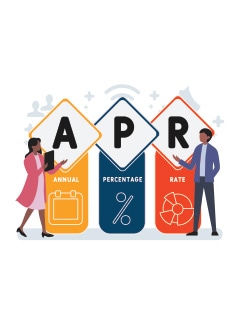CKYC Registry
-
Customer Service Contact us Service request Locate a branch
Find all the help you need
Scan the QR, get our app, and find help on your fingertips

Help CenterSupport topics, Contact us, FAQs and more
-
Login
Are you ready for an upgrade?
Login to the new experience with best features and services
-
Login
Are you ready for an upgrade?
Login to the new experience with best features and services
- Accounts
-
Deposits
IDFC FIRST Bank Deposits
View all Deposits -
Loans
IDFC FIRST Bank Loans
View all Loans - Wealth & Insure
-
Payments
IDFC FIRST Bank Payments
View all Payments -
Cards
IDFC FIRST Bank Cards
View all Cards - Blogs
- Corporate Account
-
Cash Management Services
IDFC FIRST Bank Cash Management Services
View all Cash Management Services - Supply Chain Finance
-
Corporate Lending
IDFC FIRST Bank Lending
View all -
Treasury
IDFC FIRST Bank Treasury
See more details - NBFC Financing
Support topics, Contact us, FAQs and more
- IDFC FIRST Bank Accounts
-
Savings Account
-
Corporate Salary
Account -
Senior Citizens
Savings Account -
First Power
Account -
Current Account
-
NRI Savings
Account -
TASC Institutional
Account -
Savings Account
Interest Calculator
- IDFC FIRST Bank Deposits
-
Fixed Deposit
-
Recurring Deposit
-
NRI Fixed Deposit
-
Safe Deposit Locker
-
FD Calculator
-
RD Calculator
- IDFC FIRST Bank Loans
-
Personal Loan
-
Consumer Durable
Loan -
Home Loan
-
Business Loan
-
Professional Loan
-
Education Loan
-
New Car Loan
-
Pre-owned Car Loan
-
Two Wheeler Loan
-
Pre-owned Two
Wheeler Loan -
Commercial Vehicle
Loan -
Gold Loan
-
Loan Against Property
-
Loan Against Securities
-
Easy Buy EMI card
-
Personal Loan
EMI Calculator -
Education Loan
EMI Calculator -
Home Loan
EMI Calculator
- IDFC FIRST Bank Wealth & Insure
-
FIRST Select
-
FIRST Wealth
-
FIRST Private
-
Mutual Funds
-
Sovereign Gold Bond
-
Demat Account
-
Term Insurance
-
Life Insurance
-
Health Insurance
-
General Insurance
-
Bonds
-
Loan Against
Securities -
Portfolio Management
Service
- IDFC FIRST Bank Payments
-
FASTag
-
Credit Card
Bill Payments -
UPI
-
Funds Transfer
-
Forex Services
-
Pay Loan EMI
- IDFC FIRST Bank Cards
-
Ashva :
Metal Credit Card -
Mayura :
Metal Credit Card -
FIRST Millennia
Credit Card -
FIRST Classic
Credit Card -
FIRST Select
Credit Card -
FIRST Wealth
Credit Card -
FIRST WOW!
Credit Card -
Deals
-
Debit Cards
-
Co-branded Cards
-
Credit Card
EMI Calculator -
FIRST Corporate
Credit Card -
FIRST Purchase
Credit Card -
FIRST Business
Credit Card
- Premium Metal Credit Cards
-
AshvaLifestyle1% Forex₹2,999
-
MayuraLifestyleZero Forex₹5,999
-
FIRST PrivateInvite Only
- Best for travellers
-
MayuraZero ForexMetal₹5,999
-
Ashva1% ForexMetal₹2,999
-
FIRST WOW!Zero ForexTravelLifetime Free
-
FIRST SWYPTravel OffersEMI₹499
-
FIRST Select1.99% ForexLifestyleLifetime Free
-
FIRST Wealth1.5% ForexLifestyleLifetime Free
-
Club VistaraTravelLifestyle₹4,999
-
IndiGo IDFC FIRST Dual Credit CardTravelLifestyle₹4,999
- Max benefits, Free for life
-
FIRST Classic10X RewardsShoppingNever Expiring Rewards
-
FIRST Millennia10X RewardsShoppingNever Expiring Rewards
-
FIRST Select10X RewardsLifestyle1.99% Forex
-
FIRST Wealth10X RewardsLifestyle1.5% Forex
-
FIRST WOW!RewardsTravelZero Forex
-
LIC ClassicRewardsInsuranceShopping
-
LIC SelectRewardsInsuranceShopping
- Reward Multipliers
-
AshvaLifestyleMetal₹2,999
-
MayuraLifestyleZero Forex₹5,999
-
FIRST ClassicNever Expiring RewardsShoppingLifetime Free
-
FIRST MillenniaNever Expiring RewardsShoppingLifetime Free
-
FIRST SelectNever Expiring RewardsLifestyleLifetime Free
-
FIRST WealthNever Expiring RewardsLifestyleLifetime Free
- Rewards & Credit on UPI
-
FIRST Power+FuelUPI₹499
-
FIRST PowerFuelUPI₹199
-
FIRST EA₹NVirtual1% Cashback₹499
-
FIRST DigitalVirtualUPI₹199
-
IndiGo IDFC FIRST Dual Credit CardUPITravelDual cards
- Fuel and Savings
-
FIRST PowerRewardsUPI₹199
-
FIRST Power+RewardsUPI₹499
-
LIC ClassicRewardsInsuranceShopping
-
LIC SelectRewardsInsuranceShopping
- Express and Flaunt
-
AshvaMetal1% Forex₹2,999
-
MayuraMetalZero Forex₹5,999
-
FIRST SWYPEMIOfferMAX₹499
-
FIRST MillenniaRewardsShoppingLifetime Free
- FD Backed rewarding Credit Cards for all
-
FIRST EA₹NVirtualCashback₹499
-
FIRST WOW!Zero ForexTravelLifetime Free
-
CreditPro Balance TransferTransfer & SaveReduce InterestPay Smartly
- IDFC FIRST Bank NRI Forex Solutions
-
Send money to India-Wire transfer
-
Send money to India-Digitally
-
Send money abroad
-
Max Returns FD (INR)
- IDFC FIRST Bank MSME Accounts
-
Platinum Current
Account -
Gold
Current Account -
Silver Plus
Current Account -
Merchant Multiplier
Account -
Agri Multiplier
Account -
TASC Institutional
Account -
Dynamic Current
Account -
World business
Account -
First Startup
Current Account
- IDFC FIRST Bank Business Loans
-
Business Loan
-
Professional Loan
-
Loan Against Property
-
Business Loan for Women
-
Working Capital Loan
-
Construction Equipment Loan
-
Machinery Loan
-
Healthcare Equipment Loan
- IDFC FIRST Bank Business Solutions
-
Payment Solutions
-
Tax Payments
-
Doorstep Banking
-
Point of Sale (POS)
-
Escrow Accounts
-
NACH
-
Payment Gateway
-
UPI
-
Virtual Accounts
-
As per amendment in the Income Tax Rules, PAN or Aadhaar are to be mandatorily quoted for cash deposit or withdrawal aggregating to Rupees twenty lakhs or more in a FY. Please update your PAN or Aadhaar. Kindly reach out to the Bank’s contact center on 1800 10 888 or visit the nearest IDFC FIRST Bank branch for further queries.
-
-
Most Searched
Sorry!
We couldn’t find ‘’ in our website
Here is what you can do :
- Try checking the spelling and search
- Search from below suggestions instead
- Widen your search & try a more generic keyword
Suggested
Get a Credit Card
Enjoy Zero Charges on All Commonly Used Savings Account Services
Open Account Now
Pitfalls you must avoid with your Credit card to get the most out of it
With all the bad press that plastic has been getting lately, the only saving grace is perhaps its ubiquitous appearance in the form of credit cards. Credit cards are an essential – if not indispensable – facet of personal finance. It is the ideal way to enhance your credit rating and a great way to inculcate financial responsibility. However, some individuals construe credit cards as a source of funds when broke. They seem okay with being charged exorbitantly for this privilege. Though not incorrect, this view certainly is flawed. It leads to complacency regarding credit cards, which eventually leads to detrimental outcomes.
That lackadaisical perspective can lead to multiple pitfalls, which are listed below:
The Catch-22 of minimum payment
Often, individuals, will gladly accept and pay the minimum amount they owe on their credit card. But humans are a bit short-sighted. It seems simple to max out the card and yet pay just a fraction of the amount. But here's the fine print: The interest charged on the credit card will soon make you feel like Antonio to their Shylock. This high interest charged on the pending amount accumulates each month and should be a giant red flag. Hopefully, after reading this, that will change.
READ MORE
The lazy use of plastic
Are you one of those who shamelessly flaunt their credit card even to the vegetable vendor, hoping he has a card machine? Please exercise more control and use credit cards for meatier payments. Everyday purchases should ideally not be made on credit. This is because of the interest that accumulates on each purchase. Why use a credit card to buy milk worth Rs 60 when it eventually costs you around Rs 70? Also, why fill your account with a thousand small transactions that make it difficult to keep track of your spending? Use credit cards wisely and for purchases that do justice to the credit card. (This is not an elitist statement, more of a pragmatic one).
The reward chase
Rewards are a significant aspect of credit cards, a sweetener to the deal. But rewards should never be the REASON to have a credit card. The formulaic nature of such rewards should discourage you from obsessing over them. Still, human stubbornness is unparalleled. The math on this is solid. You will not outsmart the credit card company by enhancing your reward prospects. You may feel like you have, but your billing cycle will consistently prove otherwise. Instead, treat the reward for what it is – a lovely gift that can be integrated into the system if you are a consistent user.
It does not exist if I can't see it
Sadly, this is the take of quite a few people regarding credit card debt. It includes those who would rather settle the debt in the next month when they feel they will control their financial situation. Either way, the only warning that can be provided to you is CUMULATIVE HIGH INTEREST. The debt will get bigger the longer you ignore it. If not dealt with immediately, expect to be thoroughly defeated by it eventually. Also, assuming that the credit card's fine print has not been read, the interest rate charged may shoot up if the debt accumulates beyond a certain threshold.
Over the edge
The credit limit is not a gentle reminder nor a vague guideline. It is a very real limit reflecting the maximum amount that the credit card user can avail of. It is arrived at after thoroughly studying the financial history of the user. In other words, that limit is not arbitrary; it is an honest reflection of your ability to pay and the amount of debt you can take on. Again, the limit does not mean you always have to hit that limit – much less exceed it. If you are tempted to, please remember that most credit cards charge an over-limit fee as well. And yet, maxing out on a card seems to be a normal phenomenon for many. Your credit rating takes a hit, your debt increases, your liquidity for the month decreases. So, respect the limit by keeping it within your sight.
I will pay eventually
Delayed payments are another issue. Imagine – you feel you have lived up to your end of the deal (though slower than expected), and yet you are penalized for it! Penalized by having your credit score affected, by ensuring that your chances for upgrading the limit and the rewards on your credit card also take (much) longer, and by enduring the ever-present interest rate. Avoid this at all costs. Plan a little better by keeping a tab on your finances; this should take no more than 15 minutes every day.
Who reads the T&C anyway?
Well, you should, without a doubt. It could help you save money you didn't even know you were going to lose. Credit card companies have many rules regarding payment, interest charges under different scenarios, the treatment of debt, etc. What's more, due to the competitive nature of the credit card industry, these factors could vary from card to card and from company to company. So read everything carefully and understand the boundaries you need to set for yourself while using your credit card.
Last words
Credit cards, if used intelligently, can offer you supreme convenience and peace of mind. Used recklessly, however, they can blow up in your face. Pay heed to the points mentioned above, and you will be blessed with a good credit score, better financial awareness, and consistent liquidity.
Disclaimer
The contents of this article/infographic/picture/video are meant solely for information purposes. The contents are generic in nature and for informational purposes only. It is not a substitute for specific advice in your own circumstances. The information is subject to updation, completion, revision, verification and amendment and the same may change materially. The information is not intended for distribution or use by any person in any jurisdiction where such distribution or use would be contrary to law or regulation or would subject IDFC FIRST Bank or its affiliates to any licensing or registration requirements. IDFC FIRST Bank shall not be responsible for any direct/indirect loss or liability incurred by the reader for taking any financial decisions based on the contents and information mentioned. Please consult your financial advisor before making any financial decision.
The features, benefits and offers mentioned in the article are applicable as on the day of publication of this blog and is subject to change without notice. The contents herein are also subject to other product specific terms and conditions and any third party terms and conditions, as applicable. Please refer our website www.idfcfirstbank.com for latest updates.























